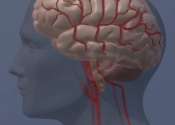Patient-friendly and accurate cardiac damage diagnosis
Systemic inflammatory diseases, such as lupus, often cause cardiac damage that goes undetected. An international research team headed by the Institute for Experimental and Translational Cardiovascular Imaging at the University ...
Sep 7, 2018
0
1









